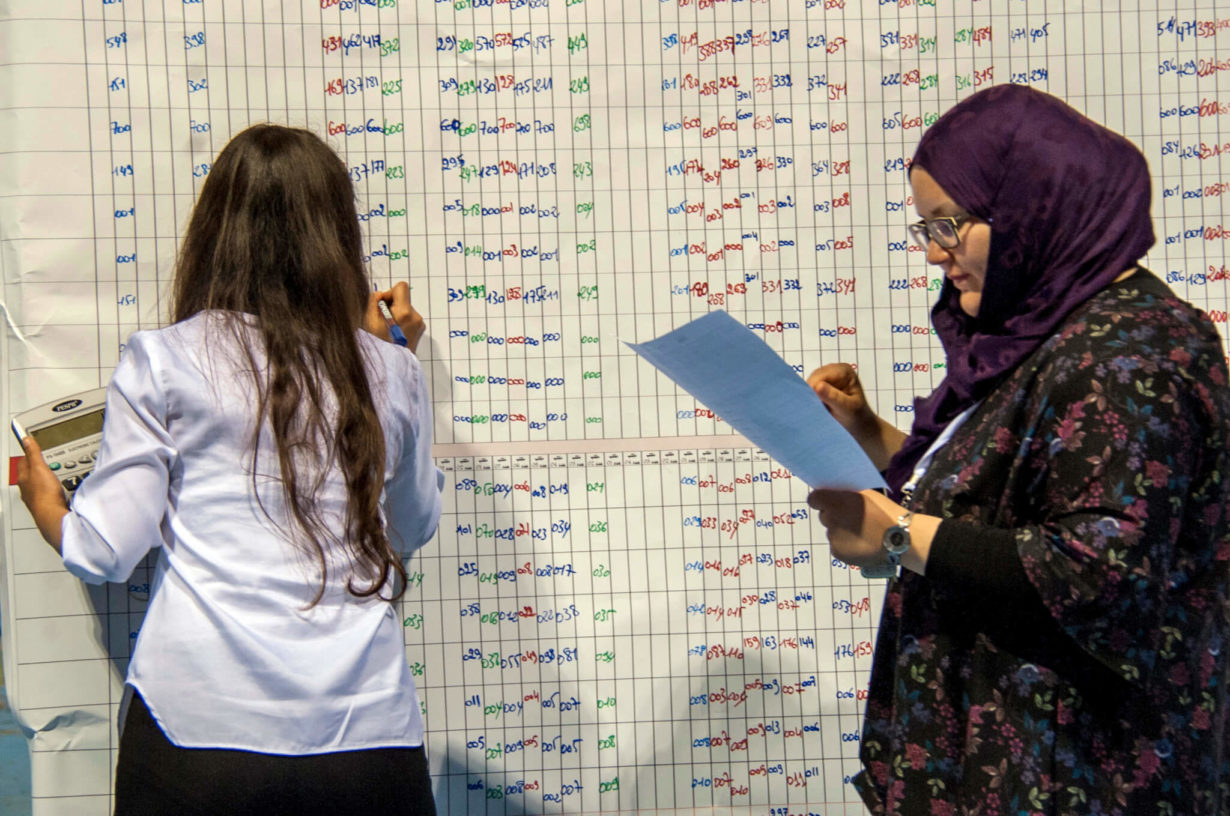
Across the Middle East and North Africa, citizens have become disenchanted with politics and government, according to a new report on civic engagement from the Arab Barometer, an independent research network that includes Arab universities and seeks to gauge Arab public opinion.
Fifty percent of Arabs feel they have a guaranteed right to protest and two thirds believe they can criticize their government without fear. But while many feel able to partake in political life, the public’s participation rates in elections and demonstrations don’t reflect those beliefs. For example, just 12 to 15 percent of those surveyed said they had taken part in a protest, rally or petition within the last year.
The level of civic engagement varies across the region—citizens of some countries feel less disillusioned than others, with Lebanon, Tunisia and Jordan having more engagement than Egypt and Palestine.
“The gap between the public’s perception that they are free to participate and those who actually do was surprising to me and that suggests they’re disillusioned,” says the report’s author, Kathrin Thomas, senior research specialist in the department of politics at Princeton University.
The Arab Barometer collaborates with Princeton University, the University of Jordan, Qatar University, the Palestinian Center for Policy and Research, One-to-One for Research and Polling, and the University of Michigan to produce the report.
In Algeria, Egypt, Jordan, Lebanon, Morocco, Palestine and Tunisia, the report surveyed 1,200 adults per country in 2016. The gender ratio was roughly 50:50 in all countries and the ages were matched to the demographic breakdown of each country.
“We also try to cover all regions within a country,” says Thomas. “That’s not always possible in countries with unsafe regions because we won’t send our data collectors to unsecure locations, but we try not exclude more than three percent of a population from being represented in the survey.”
The survey respondents are disenchanted with politics, says Thomas, partly because they feel that the 2011 “Arab spring” has not born fruit. In Egypt just three percent of people said they had signed a petition in the last year. In Lebanon, recent participation in petitions jumps to 17 percent.
“If you don’t see the results from your participation, would you be motivated to take part again? The average person who does something and fails probably won’t take part again. It’s demotivating,” says Thomas.
There are variations between countries when it comes to the public’s perception of civil liberties. For example, in Tunisia 80 percent of people said they can criticize the government without fear. In Egypt, 51 percent of people said they were confident in criticizing their government and in Palestine the figure fell to 35 percent.
However, some regional commonalities became evident.
The report found that electoral turnout hovers around the 50 percent mark in all the countries surveyed except for Algeria, which suffers a lower turnout of just 34 percent. By comparison, in the United Kingdom, voter turnout was close to 70 percent for the 2017 general election. Fifty-six percent of U.S. voters made it to the polls in the most recent presidential election in 2016.
The report adds data to a region where reliable statistics on social trends can be tough to get hold of, which Thomas says is the first step towards encouraging change to improve civic engagement.
“It offers us an opportunity to give a voice to the general public in the Arab world by asking relevant questions and disseminating their opinions.”
Cross-post is by permission from Alfanar Media.
![]()


